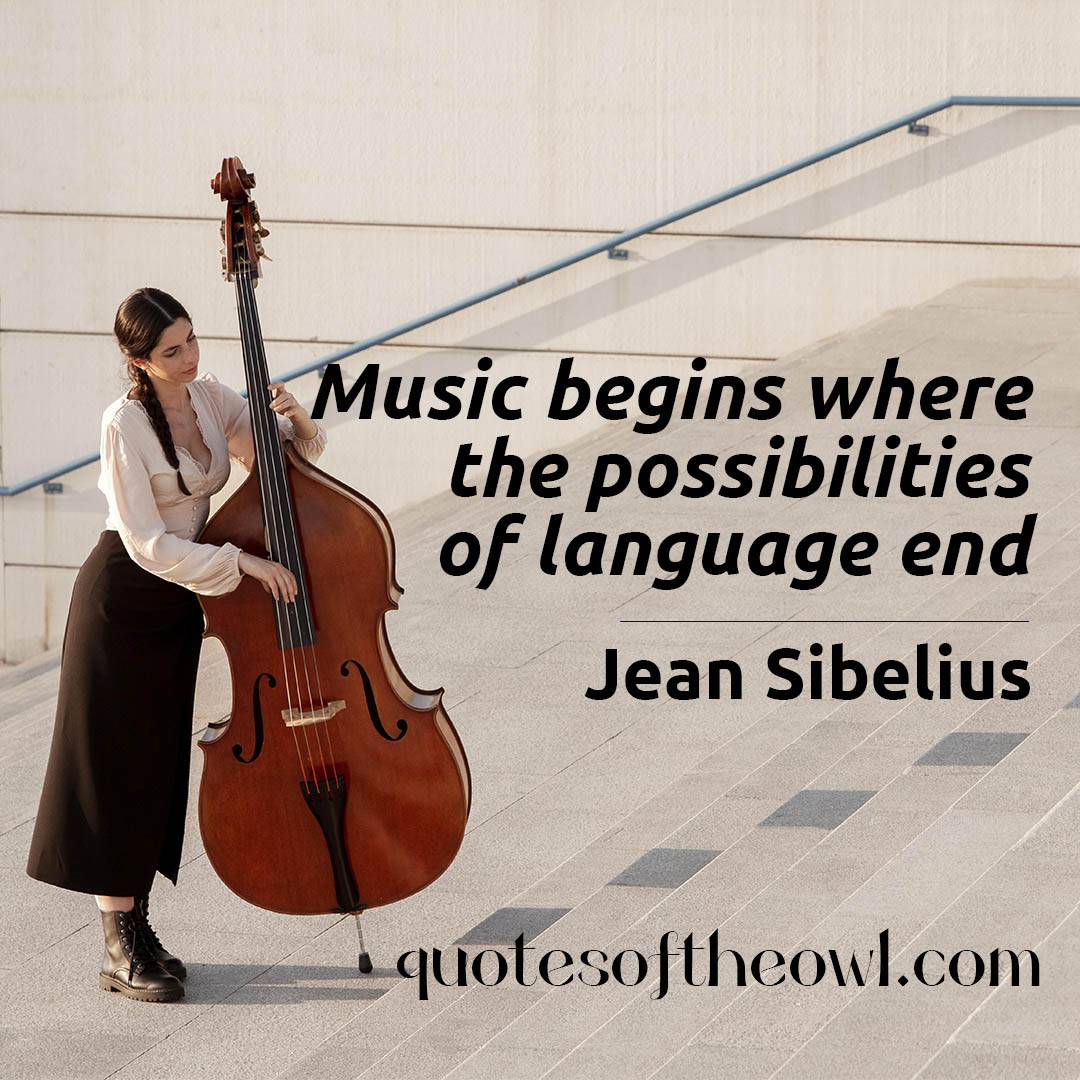What is the meaning of Jean Sibelius’s Quote: “Music begins where the possibilities of language end”?
Jean Sibelius, a Finnish composer, famously said, “Music begins where the possibilities of language end.” This quote has become a cornerstone in the world of music, and it has been interpreted in various ways by different people. In this article, we will examine the meaning behind Sibelius’s quote and explore the connection between language and music.
What are the possibilities of Language?
Language is a powerful tool for communication, but it has its limitations. Words can only express so much, and they often fall short in describing emotions and experiences. Language is limited by its structure and syntax, which can make it difficult to convey complex ideas and emotions.
Limitations of Language in Expressing Emotions
One of the most significant limitations of language is its inability to fully express emotions. While words can describe emotions, they often fail to capture the depth and complexity of human feelings. Emotions are nuanced and multifaceted, and they cannot always be put into words.
Music as an Alternative to Language
Music offers an alternative to language when it comes to expressing emotions. Music has the power to evoke feelings and emotions without the use of words. It can communicate on a level that is beyond the capabilities of language. Music can be used to convey complex emotions and experiences that cannot be expressed through words.
The Role of Music in Expressing Emotions
Music plays an essential role in our lives, and it has been used for centuries to express emotions and feelings. Whether it’s a love song, a funeral march, or a happy tune, music has the power to convey emotions in a way that language cannot.
The Power of Music to Evoke Emotions
One of the most significant powers of music is its ability to evoke emotions. Music has a way of touching our hearts and souls, and it can elicit a wide range of emotions, from joy to sadness to nostalgia. Music has been shown to affect our mood and can be used as a tool for relaxation and stress relief.
The Limitations of Music
While music has many advantages over language when it comes to expressing emotions, it also has its limitations. Music cannot convey concrete ideas or concepts in the same way that language can. For example, it would be difficult to use music to explain a mathematical equation or a scientific theory.
The Connection between Language and Music
Despite their differences, language and music are closely connected. Both use sound as a medium for communication, and they both have the power to evoke emotions. Many languages incorporate music and singing into their traditions, and many musical traditions have their own unique languages and dialects.
The Importance of Music Education
Given the power and importance of music in our lives, it is crucial that we prioritize music education in our schools and communities. Music education provides young people with the tools they need to express themselves and understand the world around them. It also fosters creativity and critical thinking skills, which are essential for success in all areas of life.
Conclusion
In conclusion, Jean Sibelius’s quote, “Music begins where the possibilities of language end,” speaks to the power of music as a tool for expressing emotions and experiences that cannot be put into words. While language and music are different, they are closely connected, and both have important roles to play in our lives. By prioritizing music education and promoting multilingualism, we can better appreciate and understand the power of music in our lives.

